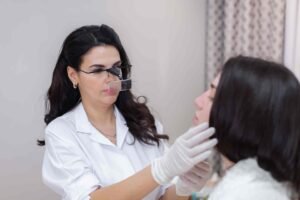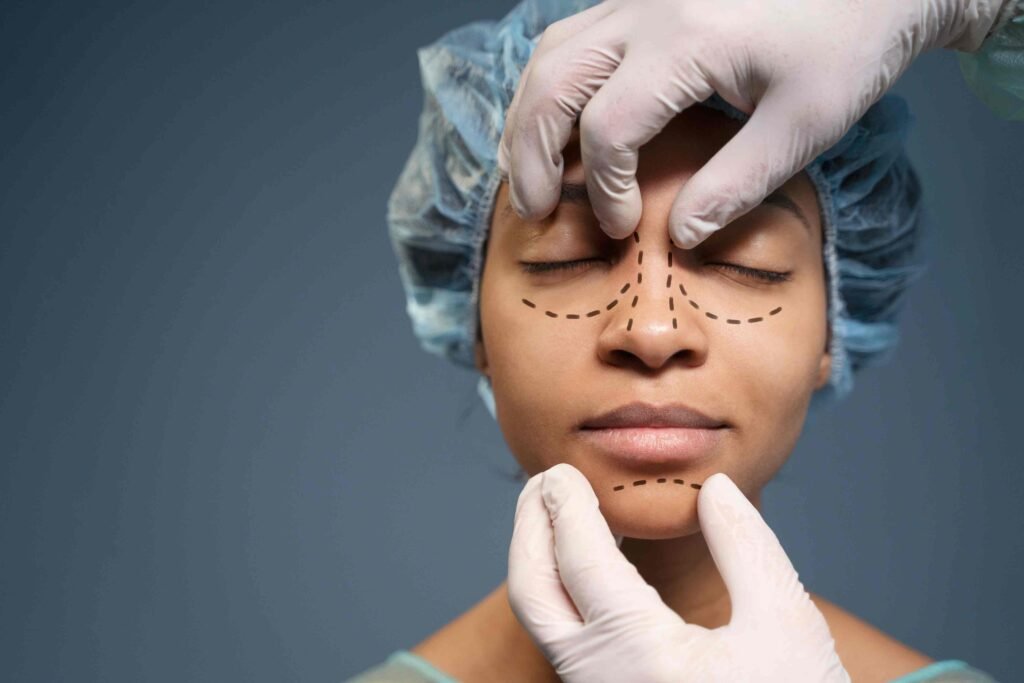Recovery Process After Cosmetic Surgery
Cosmetic surgery can be an exciting journey towards achieving the look you’ve always wanted, but it’s important to understand that the recovery process plays a crucial role in the overall success of the procedure. Whether you’re undergoing a facelift, breast augmentation, rhinoplasty, or liposuction, knowing what to expect during the recovery phase will help ensure that you heal properly and get the best possible results.
In this guide, we’ll take a deep dive into the recovery process after cosmetic surgery. We’ll break down each stage of recovery, from the first few days post-surgery to the weeks and months that follow. The key to a smooth recovery is preparation, patience, and following your surgeon’s advice every step of the way.
Why is the Recovery Process Important?
Many people focus on the surgery itself, but the recovery process is just as vital for the outcome. How you take care of yourself after surgery can affect your healing, the appearance of your results, and even your overall health. Healing well after cosmetic surgery ensures that scars heal properly, swelling goes down as expected, and you’re able to return to your daily life without complications.
Let’s dive into what you can expect throughout the recovery process, and how to take care of yourself after cosmetic surgery to get the results you’re hoping for.

Preparing for Post-Surgery Recovery
Before we jump into what happens after surgery, it’s important to know that recovery begins before the procedure itself. Proper preparation can make your recovery smoother and less stressful.
1. Arrange for Help at Home
The first few days after cosmetic surgery can be the most challenging. Whether it’s a major procedure like a tummy tuck or something less invasive like lip fillers, you’ll need help. Arrange for a friend, family member, or even a professional caregiver to assist you, especially during the first 48 hours.
2. Create a Comfortable Healing Space
Setting up a dedicated recovery area at home is essential. Think about comfort and convenience: pillows for support, a cozy blanket, easy access to medications, water, and your phone charger. If your surgery involves the face or neck, you may need to sleep in an elevated position, so having an adjustable bed or lots of pillows will help.
3. Stock Up on Essentials
Have everything you need ahead of time. Stock your fridge with easy-to-prepare, healthy meals and snacks. Make sure you have any prescription medications your surgeon has prescribed, as well as over-the-counter pain relief options. Having everything on hand will reduce unnecessary movement and stress during the first days of recovery.
The First 24-48 Hours After Surgery
Immediately after your cosmetic surgery, you’ll likely feel groggy as the anesthesia wears off. It’s common to feel discomfort, tightness, or mild pain, depending on the procedure you’ve had. During this initial phase, your body is adjusting to the trauma of surgery, and rest is crucial.
Common Symptoms You May Experience
– Swelling: Expect some swelling, which is your body’s natural response to surgery. Depending on the type of cosmetic surgery, swelling may peak in the first 48 hours and slowly begin to subside.
– Bruising: Bruising is also common, especially in areas like the face, breasts, or abdomen. This is part of your body’s healing process and should fade over time.
– Pain and discomfort: Mild to moderate pain is normal, but it can be managed with the pain medications prescribed by your surgeon. Be sure to take these medications as directed to stay ahead of the discomfort.

Rest and Relaxation
The first 24-48 hours post-surgery are all about rest. Try to keep movement to a minimum, and let your body focus on healing. Your surgeon may advise you to elevate certain parts of your body (like keeping your head raised after facial surgery) to help reduce swelling.
The First Week After Cosmetic Surgery
During the first week, you’ll begin to feel a little more like yourself, but don’t be tempted to rush into activities. This week is critical for healing and avoiding complications. Your body is still fragile, and proper aftercare is essential.
Post-Surgery Follow-Up Appointment
Around this time, you’ll have a follow-up appointment with your surgeon. They will check your incisions, ensure everything is healing properly, and may remove any stitches or drains that were placed during surgery. This is also the time to ask any questions or share concerns about your recovery.

Caring for Your Incisions
Following your surgeon’s instructions for wound care is crucial to minimize the risk of infection and ensure the best possible healing. Your incisions should be kept clean and dry, and you’ll need to change bandages as directed. Some surgeries require you to wear compression garments, which help reduce swelling and support the healing tissues.
Swelling and Bruising
At this stage, you might still have significant swelling and bruising, especially if your procedure involved the face, abdomen, or breasts. Swelling can take weeks or even months to fully resolve, so be patient. Cold compresses and keeping the affected area elevated can help.
Week 2-3 of Recovery
By the second and third weeks of recovery, many people start to feel much better. You might notice that your energy levels are returning, and the swelling and bruising are beginning to fade. However, just because you feel better doesn’t mean you’re fully healed.
Gradual Return to Normal Activities
During this time, your surgeon may allow you to start light activities. Walking around the house is encouraged to promote circulation and prevent blood clots, but strenuous activities, exercise, and heavy lifting are still off-limits. Listen to your body—if something feels too difficult, it’s best to rest and allow more time for healing.
Emotional Recovery
Cosmetic surgery doesn’t just affect the body—it can also stir up emotions. You might feel a mix of excitement and anxiety, especially if you’re still swollen or bruised. Many patients experience a “post-surgery blues” during this stage because they are impatient to see their final results. Keep in mind that healing takes time, and your appearance will continue to improve over the coming weeks.
One Month After Surgery
At the one-month mark, most of the initial swelling and bruising will have subsided, and you’ll be able to see more of the results of your cosmetic surgery. However, this doesn’t mean the recovery process is over.
Scarring and Skin Sensitivity
By this point, your incisions should be healing well, but the scars will still be visible. Scars can take several months to fade, and they may be red or raised at first. Using scar treatments, such as silicone sheets or creams recommended by your surgeon, can help minimize scarring over time.
You might also notice that the skin around the surgical area feels tight, itchy, or numb. These sensations are normal and should gradually fade as the nerves heal. In some cases, numbness can persist for several months.
Resuming Exercise and Normal Activities
Around the one-month mark, your surgeon may clear you to resume light exercise, like walking or swimming. However, intense physical activities like running, weight lifting, or high-impact sports are likely still off-limits. Every surgery has its own recovery timeline, so follow your surgeon’s advice closely and don’t rush the process.

Two to Three Months After Surgery
By the two- to three-month mark, you should feel much more comfortable and see significant improvement in your overall appearance. Most of the swelling will have gone down, although some residual puffiness may still linger, especially after procedures like tummy tucks or facelifts.
Monitoring Your Progress
It’s important to keep attending any follow-up appointments with your surgeon so they can monitor your healing progress. This is also the time when you can start thinking about the long-term results of your cosmetic surgery. Your surgeon will give you guidance on how to maintain the results, such as staying at a stable weight after liposuction or using sun protection to prevent scarring after facial surgery.
Patience is Key
At this stage, you’ll be closer to seeing your final results, but remember that it can take up to a year for the full effects of cosmetic surgery to be visible. Patience is essential—let your body continue to heal and avoid comparing your progress to others, as recovery is highly individualized.
The Six-Month to One-Year Mark
By six months to a year after your cosmetic surgery, you should be fully healed. Any residual swelling should have completely disappeared, and your scars should have faded significantly. If you’ve followed your surgeon’s post-op instructions and taken good care of yourself during the recovery process, you should be enjoying the final results of your surgery by now.
Maintaining Your Results
The results of cosmetic surgery can be long-lasting, but it’s important to maintain a healthy lifestyle to preserve them. For example, weight fluctuations can affect the outcome of procedures like liposuction or tummy tucks, and smoking or excessive sun exposure can harm the appearance of facial surgery results.
By taking good care of yourself and keeping up with your follow-up appointments, you can ensure that your results look great for years to come.

Conclusion: Patience, Care, and Following Doctor’s Orders
Recovering from cosmetic surgery is a journey, but with the right preparation, care, and patience, you can ensure that you get the best possible outcome. It’s important to follow your surgeon’s instructions, listen to your body, and allow yourself the time you need to heal fully.
Remember, everyone’s recovery timeline is different, and it’s okay to take things at your own pace. Whether you’re healing from a minor procedure or a more extensive surgery, the key is to stay patient and trust the process.


